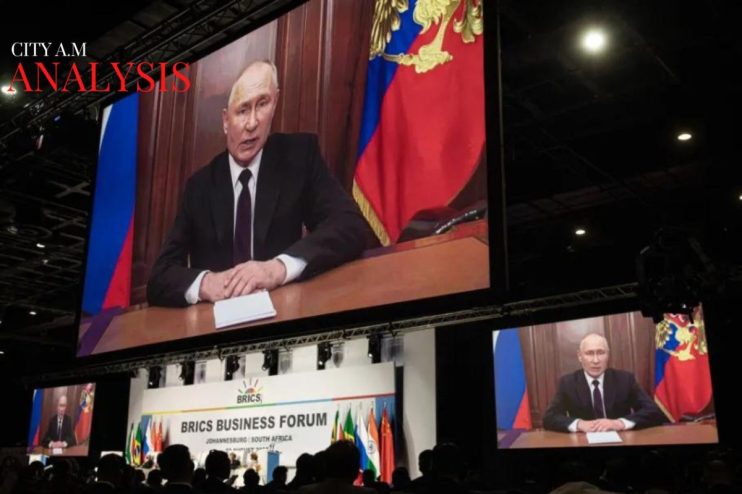Prigozhin’s believed assassination is a sign of a weak, desperate Putin

As ever with Russia you can never say never to any possibility, and with the reported death of Wagner Group chief Yevgeny Prigozhin, there are still an abundance of unknowns. But it certainly seems the military boss was assassinated yesterday, with his plane exploding on its way to St Petersburg.
The decision to take out Prigozhin has been described as strange timing but nonetheless a signal of strength from Putin. Nothing could be further from the truth. Putin’s actions are calculated, but driven from weakness, not strength.
Yesterday marked two months since Prigozhin’s ill-fated “march for justice” on Moscow. What the events of that day showed was that while Wagner posed a comparatively limited practical threat to Putin, symbolically the revolt was deeply significant. That morning I predicted that the main practical outcome of the uprising would be the end of the Wagner Group and the demise of Prigozhin. That appears to have now been fulfilled.
In the intervening period Putin has been strengthening domestic security arrangements to avoid the risk of another uprising. Alongside this he will have been making careful plans for what to do with the Wagner Group. With a number of their troops still ensconced in Belarus and the mercenaries active across much of Africa, the “what next” needed careful planning.
The decision to kill Prigozhin is not a signal of strength by Putin. Any semblance of strength disappeared when the invasion in Ukraine became a disastrous quagmire for the Kremlin. A catastrophe that began to unfold not just in Ukraine but within Russia with drone strikes and the uprising by Wagner. Prigozhin’s actions brought to life not the immediate threat to Putin but the long-term existential one. Only this week, the Russian president was forced to speak to the Brics group of developing countries via video link, rather than risk travel to South Africa with a live ICC war crimes warrant against his name. His tenure is increasingly unsustainable. And then, Prigozhin appeared to be in a recording Africa talking about the future of the Wagner Group. Perhaps the final straw.
The problem for Russia, and for us, is that, as Prigozhin found out in June, there is no viable alternative to Putin. And even those who would consider replacing Putin are unlikely to want to continue with the current situation in Ukraine. While there is real concern about his leadership, including at high levels, the security apparatus prevents coordination.
While change in Russia must come from within, it will take time. The West can play an important role, however. Deepening supply of essential equipment, with the good news this week on F16s from Denmark and the Netherlands, must be aligned with long-term commitment that avoids concerns about the impact of upcoming elections (particularly in the US).
If the West stands clearly behind a plan for strategic coordination to support Ukraine it will put maximum pressure on fault lines within Russia. As these fault lines widen, more Russian resources will be diverted towards internal security and away from the frontline. While we may not be able to wish Putin out of office, we can force him to play out his losing hand in Ukraine by putting Ukraine in the best possible position on the battlefield. It’s not only in our interests to do so but the Russian people’s.
This piece was written with input from Jacob Delorme (TBI Analyst) and Dr Melanie Garson (TBI Cyber and Tech Geopolitics Lead).